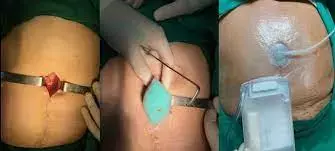- Home
- Medical news & Guidelines
- Anesthesiology
- Cardiology and CTVS
- Critical Care
- Dentistry
- Dermatology
- Diabetes and Endocrinology
- ENT
- Gastroenterology
- Medicine
- Nephrology
- Neurology
- Obstretics-Gynaecology
- Oncology
- Ophthalmology
- Orthopaedics
- Pediatrics-Neonatology
- Psychiatry
- Pulmonology
- Radiology
- Surgery
- Urology
- Laboratory Medicine
- Diet
- Nursing
- Paramedical
- Physiotherapy
- Health news
- Fact Check
- Bone Health Fact Check
- Brain Health Fact Check
- Cancer Related Fact Check
- Child Care Fact Check
- Dental and oral health fact check
- Diabetes and metabolic health fact check
- Diet and Nutrition Fact Check
- Eye and ENT Care Fact Check
- Fitness fact check
- Gut health fact check
- Heart health fact check
- Kidney health fact check
- Medical education fact check
- Men's health fact check
- Respiratory fact check
- Skin and hair care fact check
- Vaccine and Immunization fact check
- Women's health fact check
- AYUSH
- State News
- Andaman and Nicobar Islands
- Andhra Pradesh
- Arunachal Pradesh
- Assam
- Bihar
- Chandigarh
- Chattisgarh
- Dadra and Nagar Haveli
- Daman and Diu
- Delhi
- Goa
- Gujarat
- Haryana
- Himachal Pradesh
- Jammu & Kashmir
- Jharkhand
- Karnataka
- Kerala
- Ladakh
- Lakshadweep
- Madhya Pradesh
- Maharashtra
- Manipur
- Meghalaya
- Mizoram
- Nagaland
- Odisha
- Puducherry
- Punjab
- Rajasthan
- Sikkim
- Tamil Nadu
- Telangana
- Tripura
- Uttar Pradesh
- Uttrakhand
- West Bengal
- Medical Education
- Industry
Negative pressure wound therapy may decrease infection risk and hernia recurrence after ventral hernia repair

Negative pressure wound therapy may decrease infection risk and hernia recurrence after open ventral hernia repair suggests a new study published in BMC Surgery.
The susceptibility to surgical site occurrence (SSO) is high following ventral hernia repair (VHR) surgery. SSO severely increases the physical and mental burden on patients. The main purpose of this review was to analyze the efficacy of negative pressure wound therapy (NPWT) after open VHR(OVHR) and explore benefits to patients.
The Cochrane Library, PubMed, and Embase databases were searched from the date of establishment to 15 October 2022. All randomized controlled trials and retrospective cohort studies comparing NPWT with standard dressings after OVHR were included. The Revman 5.4 software recommended by Cochrane and the STATA16 software were used in this meta-analysis.
Results
Fifteen studies (involving 1666 patients) were identified and included in the meta-analysis, with 821 patients receiving NPWT. Overall, the incidence rate of SSO in the NPWT group was lower compared to the control group (odds ratio [OR] = 0.44; 95% confidence interval [CI] = 0.21–0.93; I2 = 86%; P = 0.03). The occurrence rate of surgical site infection (SSI; OR = 0.51; 95% CI = 0.38–0.68, P < 0.001), wound dehiscence (OR = 0.64; 95% CI = 0. 43–0.96; P = 0.03), and hernia recurrence (OR = 0.51; 95% CI = 0.28–0.91, P = 0.02) was also lowered. There was no significant difference in seroma (OR = 0.76; 95% CI = 0.54–1.06; P = 0.11), hematoma (OR = 0.53; 95% CI = 0.25–1.11; P = 0.09), or skin necrosis (OR = 0.83; 95% CI = 0.47–1.46; P = 0.52).
NPWT can effectively decrease the occurrence of SSO, SSI wound dehiscence and hernia recurrence and should be considered following OVHR.
Reference:
Xu, Y., Shao, S., Gong, Z. et al. Efficacy of prophylactic negative pressure wound therapy after open ventral hernia repair: a systematic review meta-analysis. BMC Surg 23, 374 (2023). https://doi.org/10.1186/s12893-023-02280-4
Keywords:
Negative, pressure, wound, therapy, may, decrease, infection, risk, hernia, recurrence, after, open, ventral, hernia, repair, Xu, Y., Shao, S., Gong, Z.
Dr. Shravani Dali has completed her BDS from Pravara institute of medical sciences, loni. Following which she extensively worked in the healthcare sector for 2+ years. She has been actively involved in writing blogs in field of health and wellness. Currently she is pursuing her Masters of public health-health administration from Tata institute of social sciences. She can be contacted at editorial@medicaldialogues.in.
Dr Kamal Kant Kohli-MBBS, DTCD- a chest specialist with more than 30 years of practice and a flair for writing clinical articles, Dr Kamal Kant Kohli joined Medical Dialogues as a Chief Editor of Medical News. Besides writing articles, as an editor, he proofreads and verifies all the medical content published on Medical Dialogues including those coming from journals, studies,medical conferences,guidelines etc. Email: drkohli@medicaldialogues.in. Contact no. 011-43720751


